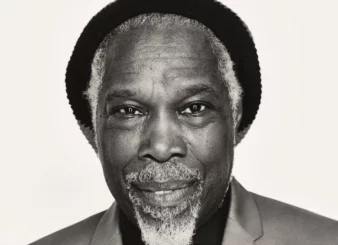Vertical Advantage is lucky enough to be working with the hugely experienced and knowledgeable Steve Carter from Elite Squared. As our Non-Exec Director, he provides not only exceptional industry expertise and know-how but does so with humour and charisma, making him the perfect partner for our business. I invited Steve in for a coffee to talk about his life in recruitment and gain his unique insight into the industry now and in the future.
Tell us about your career and how you got to where you are today
I am an accidental recruiter! I trained in accountancy but ended up moving into recruitment in 1986. I was looking for a better paid job so I went to see a recruitment consultant in Sydney. The consultant suggested that I become a Recruitment Consultant myself – so that’s what I did.
My first boss took me under his wing and set me up well. I billed immediately and broke sales records in my first month. What started as an adventure for me, stayed as an adventure! That’s the theme of my working life.
I began working in Australia for Hays and was then headhunted by the specialist Accountancy, Finance and Banking division of ADIA. I was initially responsible for a business relaunch/turnaround project but was seconded to lead a project to bid & secure the exclusive recruitment rights to the Sydney Olympic Games. Winning that contract really accelerated things for me and I was subsequently transferred to Singapore to head up the company’s South East Asian operations. This was an amazing opportunity which included a ‘once in a career’ opportunity to be part of a team that brokered a deal with the Chinese government to set up the 1st licensed employment agency in China!
ADIA merged with ECCO and I was relocated to London with the newly formed Adecco. I was then headhunted by Robert Half, and took over as their MD in 2000 and with the support of a great team we grew the businesses dramatically over the next 5 years.
After so much experience, I wanted to invest in a business and, in partnership with Premier Group (Ireland), made a number of strategic acquisitions which formed the global agency Morgan McKinley. As part of my board responsibilities I found myself back in China (!) working with the local team on the opening their office in Shanghai as well as taking responsibility for operations in Hong Kong, Australia, Japan and Singapore.
Back in London in 2014, I had the urge to leave big recruitment and work with people who were really making a difference in the industry. This desire pushed me to set up my own consultancy. My consultancy works with SME recruitment agencies, inspiring recruiters to have the courage to change. As 75% of SME recruiters fail in 2 years, I guide them to understand that they must change with the industry if they want to survive.
And what about the role you do for Vertical Advantage?
My role at Vertical Advantage is two-fold. I work with David as the owner/manager to support him and challenge him. I’m here for him to check in with, bounce ideas off and generally push him as an owner to keep developing his business. As well as this, I’ve got a strategic role. I introduce strategic concepts to the business that help make it sustainable and avoid potential issues in the future.
I’m a firm believer in business owners working ON their business and not just working in it. It’s important for them to look at the big picture to develop and survive, to take time to focus on marketing and branding and to build on insights and ideas.
Vertical Advantage is now in an exciting place! They’re investing in their people and in marketing and branding. They are focusing on their specialisms so they can become the market leader and go-to recruitment provider in their sectors. They’re aligning themselves with exciting growth businesses (just like their own) like artisan food brands and funky, digital start-ups. As well as long-term relationships with larger FMCG businesses, they are working with creative next generation brands who are ahead of the curve.
How has Vertical Advantage changed in the time that you’ve been working with the company?
Vertical Advantage has gone through the key stages of a small recruitment business that is starting to fulfil its vision. It started off in what I like to call ‘survival mode’ where the MD did it all. It then became a business which gained some maturity, building its team of consultants. David steered the ship in a good way. Now it really is a ‘business with a soul’. It’s built on David’s values. The company culture and team values are truly genuine. It’s a business full of nice people who independently are the protectors of the soul of the company. The cultural affinity of Vertical Advantage leads to its success.
What do you think differentiates Vertical Advantage from other recruitment agencies?
There’s lots of ways in which Vertical Advantage is different from other recruitment agencies. It’s boutique, specialist and individual. They focus on their specialisation which sets them apart. Also, the quality of their consultants is a massive part of it. They would rather do a good job or no job! They’d never ‘sell’ a ‘bad’ candidate because they understand the importance of their reputation.
Vertical Advantage understands the industry and that agencies need to develop to survive. They understand that the industry is changing, that life is online and that the recruitment industry needs to be moving towards the talent instead of expecting the talent to change their ways. Importantly, Vertical Advantage is in tune with the ongoing shift in ‘buyer behaviour’ in the industry and reflects that.
What do you think are the main challenges for recruitment businesses in the private sector in 2018?
I’d say that one of the main challenges for recruitment businesses is simply not enough leadership. Leadership is perpetuating bad habits from the past, shaped by their own experiences. Newer managers in the industry are up for taking risks, whereas older managers and current leaders aren’t necessarily up for taking the risks that are needed. I see how many recruitment businesses are gripped by financial fear. They’re scared of change and the ‘what ifs’.
Another key challenge is for recruitment businesses to work out where they add value. The traditional focus of recruitment agencies was business development but now it’s a candidate business. Professional people exist in pools online and the challenge to recruitment businesses today is to be uber niche and specialist in your area so that you can add value.
What do you think are the main opportunities for recruitment agencies and consultants in 2018?
I think there is huge opportunity for recruitment agencies to become more holistic in their approach. They have the opportunity to move beyond just the mechanical approach to getting people a job.
There’s a big opportunity for agencies to diversify into affiliated recruitment related areas, for example psychometric testing. As recruitment agencies diversify into offering other services there is room for growth.
What are the biggest changes to the recruitment industry that you’ve seen over the years? Any predictions on changes to come in 2018 and beyond?
Looking back now, what seemed and felt like seismic changes to the industry over the last 30 years were not actually that big a change after all. Right now is when we are going through seismic changes in the industry.
We’re experiencing a massive cultural shift in the workforce, flexible working being just one example of this. The growth of AI is hugely significant and is just one factor that will be shaping the jobs that exist in the market. AI will make some jobs redundant and new jobs will exist in the future that don’t exist today – technology based jobs, after we’ve gone through what some people call the 4th industrial revolution.
The knock-on effect to recruitment will be massive. There’ll be brand new types of jobs, like new disciplines of data scientists and strategists, plus a different generation (beyond the Millennials) ready to fulfil them. The biggest changes to the industry are now.
Predictions for now and beyond – I think the internal HR department as we know it in business will become less fashionable and HR as a notion will disappear. Instead, I can see the concept being broken down into specialist areas and people becoming experts in individual specialist areas like diversity or mobility.
For the recruitment industry, they need to adjust to the changing times. A job is part of human DNA, a rock-solid element of life and the recruitment industry needs to evolve to play a wider role.
What is your most crucial piece of advice for recruitment businesses to follow to be successful?
My main advice for owners is that they need to be opened minded about how they represent the market they serve – essentially not just behaving the same as they did for the last 25 years and expecting it to work.
SME business recruitment owners are often gripped by fear of losing profits which prevents them from changing for fear they’ll go broke. My advice is, you must change or you will go broke! Innovate or die. Change and grow. Don’t be gripped by fear. Get over the wall that may be standing in your way, get good advice and always innovate!
How do you see the industry in the future?
I think the conventional recruitment agency will be gone as buyers of recruitment will be looking for a different type of service. I think there’ll be a growth in Peer 2 Peer platforms in the recruitment industry, copying our interest in them in other scenarios, as people look for recommendations for candidates. But these platforms can make the hiring of individuals a much more disposable process.
This is where the recruitment agency can step up – offering compliance, background knowledge, dealing with issues and more – that’s what will be the USP of the agencies of the future.
























Recent Comments